FEATURE: Could you save someone's life by listening to them?
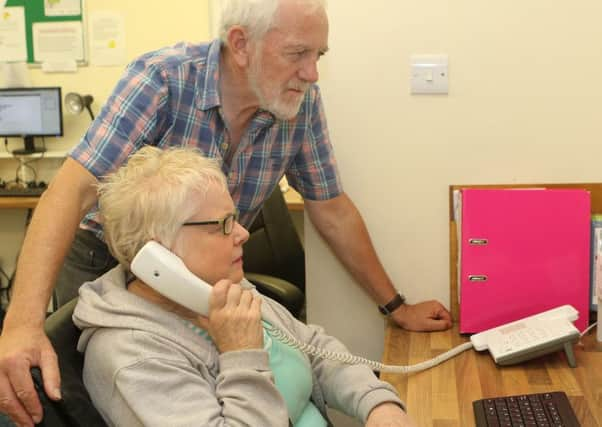

So says Tim Harding, the director of Chesterfield’s branch of the Samaritans, the charity which provides a listening service for troubled people.
The service - which is accessible 24 hours a day - is currently looking for new volunteers to help the thousands of people who call them in need of support.
Advertisement
Hide AdAdvertisement
Hide AdTim, 64, said: “It can be immensely frustrating but immensely satisfying as well - you do have difficult calls but we are prepared for that.
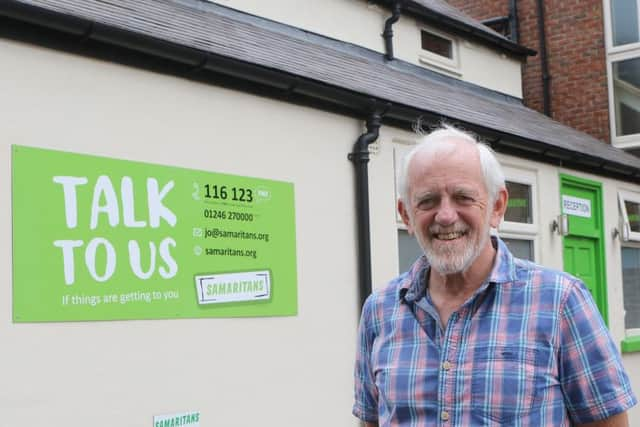

“We find if people are simply able to talk to someone else about their feelings then that is a huge relief for them.
“We help people who are lonely or suffering from depression, and people with mental health problems or who might be contemplating suicide.
“The main aim of the organisation is to promote the skills of listening. We never offer any advice, or any judgement - we help the people who call work through their own problems themselves.”
Advertisement
Hide AdAdvertisement
Hide AdThe branch runs open evenings where people can see what they do and then, if they are interested, they can come to a selection evening where people go through a series of activities.
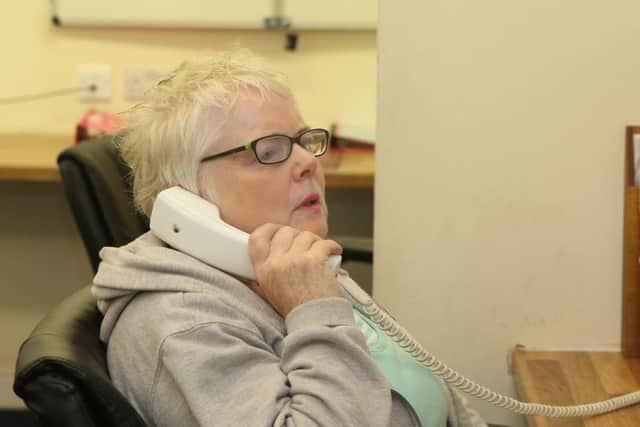

Tim says that even though they are very short of volunteers, not everybody gets accepted.
“All Samaritans receive a tremendous amount of training,” he explains.
“We train people in how to answer calls in the ‘right way’ and in keeping with Samaritans values.
Advertisement
Hide AdAdvertisement
Hide Ad“Each Samaritan has to do 12 or 13 training modules of about three or four hours each.
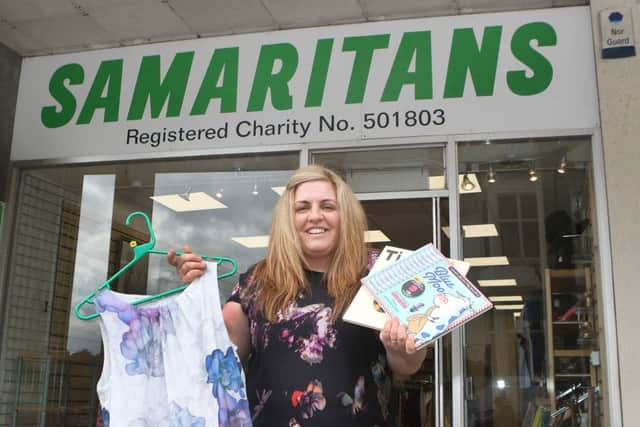

“While you are here you have to do it the Samaritans way as we know that is the best way for the people who call us.
“All the calls we get are completely confidential and our officers also answer emails, texts and What’s App messages as well.
“In addition, if people feel they would benefit from a face to face meeting we can do that as well in our one to one room.”
Advertisement
Hide AdAdvertisement
Hide AdEach local branch of the Samaritans is actually a self-funding independent charity.
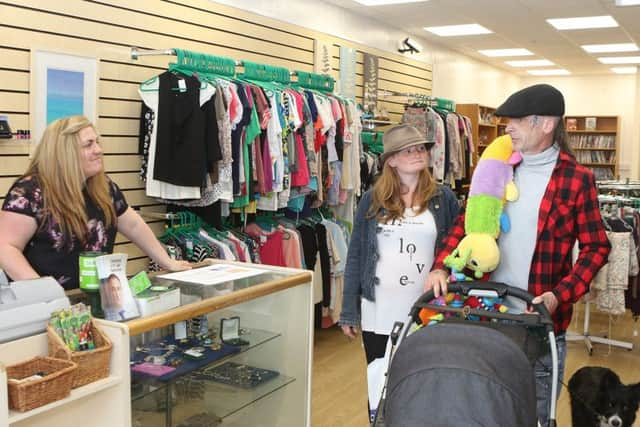

The Chesterfield branch recently moved to their current Saltergate base from Rose Hill because of its better accessibility.
They also have a shop on West Bars which Tim says is ‘critical’ to their survival and allows them an income stream other than that which comes from benefactors.
They currently have around 40 volunteers plus some administrative support but getting people to volunteer for the role is a ‘continuous struggle’.
Advertisement
Hide AdAdvertisement
Hide Ad“Some of the calls we get are really hard to answer but any volunteer can say this is too much and walk away if they like,” says Tim.
“You try to get people from a situation where they think they can’t cope to one where they can - even if its only until tomorrow.
“We simply ask them to tell us what is troubling them and consider if there might be any other options they might not have thought of.”
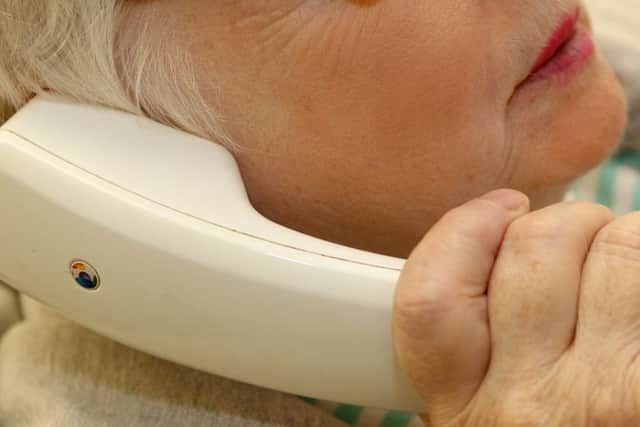

By calling their number - 116123 - anybody at any time can get through to a Samaritans officer.
Advertisement
Hide AdAdvertisement
Hide AdOne of those volunteers, Lynsey Cobb, 35, says the role is ‘very rewarding’.
“I started about a year ago but it has probably been about four months since the end of my probation period,” she says.
“I do it purely out of a motivation to help others. It can be challenging at times but it is worth it when they thank you for listening and the training provided by the organisation is excellent.
“By the time you are answering calls you have done hours and hours of practice.”
Advertisement
Hide AdAdvertisement
Hide AdLynsey says she does about 18 hours a month and that it ‘fits in well’ with her family life.
Tim says that Lynsey and all the other volunteers are very modest but that they are in fact an ‘incredible bunch of people’.
The Samaritans movement was created by Anglican priest, Chad Varah, in the 1950s but despite this there is nothing overtly religious to their work.
There are currently 210 branches across the country taking around 6 million calls every year.
Advertisement
Hide AdAdvertisement
Hide AdAs well as manning the phones the branch also does outreach activities to the prison at Sudbury and to the Chesterfield soup kitchen every Friday evening.
They also go regularly to Chesterfield and Dronfield railway stations to talk to staff there about how to deal with people considering suicide.
Before becoming active in the Samaritans Tim worked as a management consultant for very large organisations.
“We are run by volunteers but because of what we do it has to be a very professional organisation,” he explains.
Advertisement
Hide AdAdvertisement
Hide Ad“Anything anybody says to us has to be completely confidential and if we were to breach that there would be very serious consequences.
“I have always talked about work with my wife but now I can’t talk about anything - the only person we can talk to about calls are other Samaritans.”
Tim says he has noticed a rise in the numbers of calls they are getting recently and thinks that might have something to do with the difficulty many people have in accessing help via the NHS.
“We have effectively become the last resort for the mental health services but we are not trained psychiatrists,” he says.
Advertisement
Hide AdAdvertisement
Hide Ad“People tell us they can’t get access to the professional healthcare services 24 hours a day so we are plugging that gap and we are doing our best.”
If you are interested in finding out more about the Samaritans, email Tim Harding at [email protected].
If something is troubling you and you would like to speak to someone in confidence, call 116 123 or email [email protected]
Case Study: ‘Helen’ from Derbyshire
I had always dismissed any thoughts of harming myself when I was very depressed, as I had two young children. However, one night I woke about 3am in a state of panic, because on waking it had occurred to me that I could ‘take my children with me’ and I was trying to think if I has enough supplies of medicines for all three of us to be overdosed. At the same time I was in a total state on anxiety and frightened that I might actually carry this out. So I phoned directory enquiries and asked for the Samaritans phone number and was put straight through. A kind and calm voice answered and let me blurt out what my problem was. She asked a few gentle questions and listened to my answers and let me tell her the awful thoughts I had been having. It was such a relief to tell someone and admit I needed so me help for myself. The Samaritan let me tell her what I wanted - she did not probe or seem nosy or ask questions about where I lived or my age or my job or any details that could identify me - it felt like confiding in a really kind friend; and it felt wonderful to ‘offload’ my worries. The phone call probably lasted about 45 minutes, I felt very supported and much calmer by the end and resolved to get some help - which I did by going to my GP the next day.